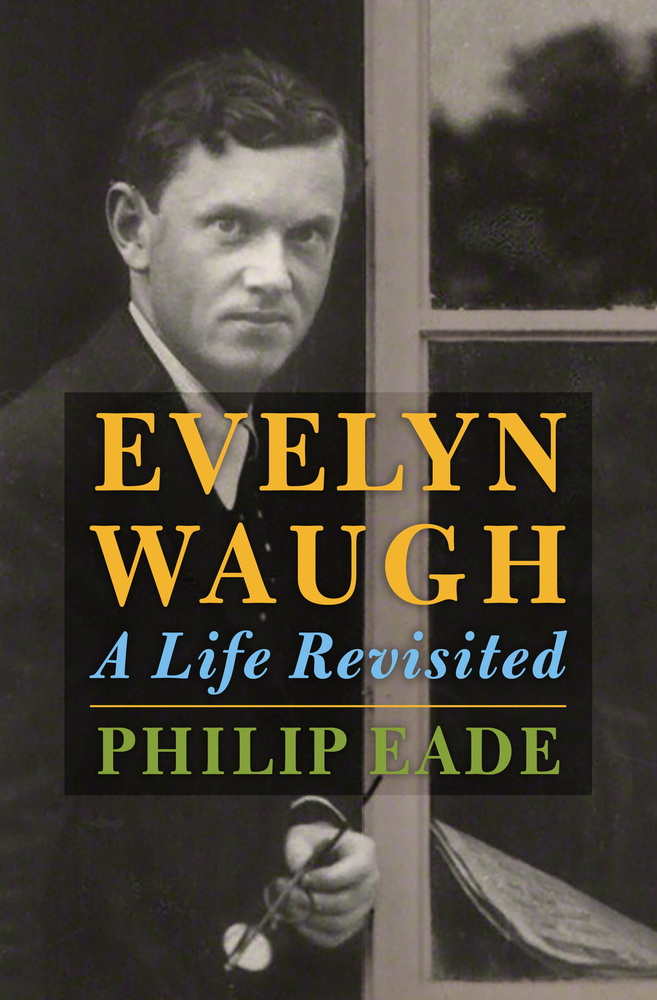Evelyn Waugh: A Life Revisited
by Philip Eade
reviewed by Laura Albritton
Just when it seems that nothing further can be said about the colorful life and times of writer Evelyn Waugh, biographer Philip Eade comes along to prove otherwise. In his entertaining and meticulously researched book, Evelyn Waugh: A Life Revisited, Eade, as he writes in the introduction, “seeks to re-examine and rebalance some of the distortions and misconceptions that have come to surround this famously complex and much mythologised character.” The author of two previous biographies, including the bestselling Prince Philip, Eade approaches his subject with empathy and an archaeologist’s determination to excavate the past. He makes use of unpublished material that includes grandson Alexander Waugh’s archives, Waugh’s letters to an unrequited love, and his first wife’s memoir, as well as past interviews and military records.
Eade guides us through Waugh’s childhood with illuminating detail; he also explores Waugh’s adolescent homosexuality and scrutinizes the evidence for various attachments and affairs. The biographer makes a strong case that Alastair Graham, not aristocrat Hugh Lygon, was both Waugh’s lover and the model for Sebastian Flyte in Brideshead Revisited. Eade notes that “it has often been suggested that he [Hugh] and Evelyn were lovers. The timing of this supposed liaison has never been convincingly established, however, and in any case the evidence that they ever went to bed together—while perfectly possible—is far flimsier than one might imagine.” The biographer responds to other Waugh biographers who have addressed this point, noting that, “Selina Hastings evidently had reservations,” while “Paula Byrne has been more emphatic about the matter.” Eade’s responses to other Waugh chroniclers make Evelyn Waugh: A Life Revisited juicy reading for Waugh devotees, although those new to the subject may find these passages less compelling.
With access to first wife Evelyn Gardner’s unpublished memoir, Eade is able to give a more detailed portrait of the aristocratic “Shevlyn” (as she was nicknamed), and to a point, a more sympathetic one. However, the biographer rebuts Gardner’s assertion that her ex-husband was “bad in bed,” while he acknowledges Waugh’s “very limited sexual experience with women” at the time of their marriage. Instead, he chalks up Gardner’s dissatisfaction to “their incompatibility … due to a straightforward lack of chemistry as any deficiencies in his sexual technique or orientation,” and points out that he “would have several passionate affairs with women in years to come” and was the father of seven offspring. This type of partisanship, which crops up occasionally in the book, can be rather startling.
Eade excels at unearthing the details of Waugh’s love life. He explores the writer’s passion for “Bright Young Thing” Teresa “Baby” Jungman, a mischievous young woman who ultimately turned down his proposal of marriage. He also reveals the extent of the writer’s passion for the timid, young aristocrat Laura Herbert, whom Waugh did succeed in marrying. In his letters, Waugh comes across as utterly devoted to his second wife: “Sweet poppet it seems such a waste to see lovely things & not be with you. It is like being one-eyed & goggling out of focus. I miss you & need you all the time.” One additional revelation is how the newly-wedded Laura longed to spend time alone with Evelyn, and how both husband and wife were less than thrilled once children started arriving.
Another Waugh myth that Eade investigates is the writer’s less-than-stellar reputation as an officer in World War II. Waugh’s superior officer Bob Laycock “has been widely accused of lying and acting in direct contravention of orders” during an evacuation of troops from Crete, and Waugh “charged with falsifying” a diary to “cover up for him.” With evidence gathered by Professor Donat Gallagher from military archives and a newly surfaced memoir by Bob Laycock, Eade argues that Waugh has been unfairly maligned.
Eade skillfully narrates the ups and downs of the writer’s life, from his conversion to Catholicism to his determined work on Brideshead Revisited during wartime. Waugh’s episodes of outrageous behavior, heavy drinking, and generosity to fellow writers are all examined with admirable evenhandedness. Most affecting is his eventual slide into despondency, as Waugh confided to a friend, “My life is roughly speaking over. I sleep badly … I get up late. I try to read my letters. I try to read the paper. I have some gin. I try to read the paper again.” Eade leaves us with the sense that the depression and ill health that led to Waugh’s death at the age of sixty-two were truly a tragedy for English letters.
Published on May 26, 2017

